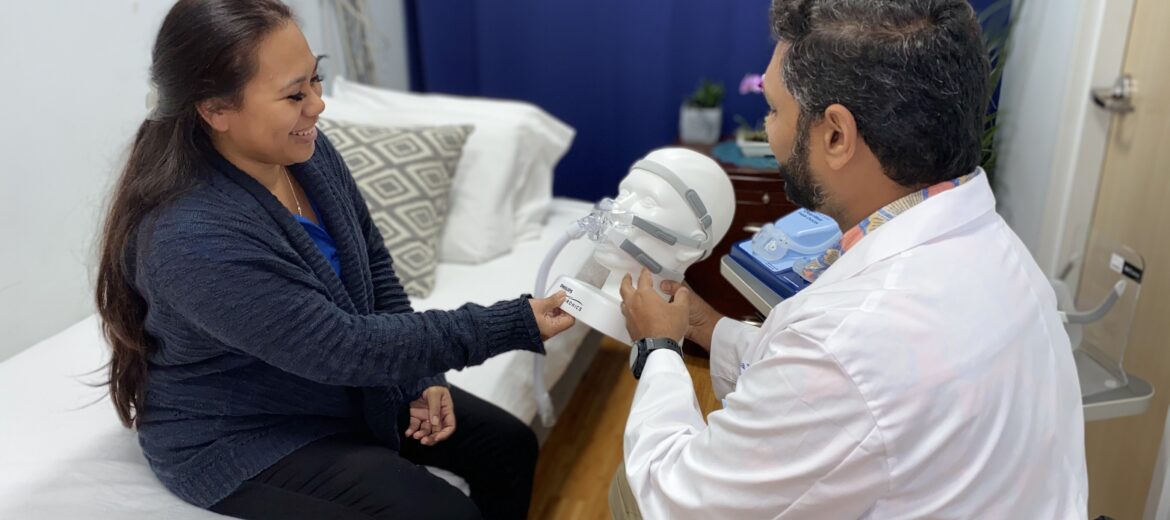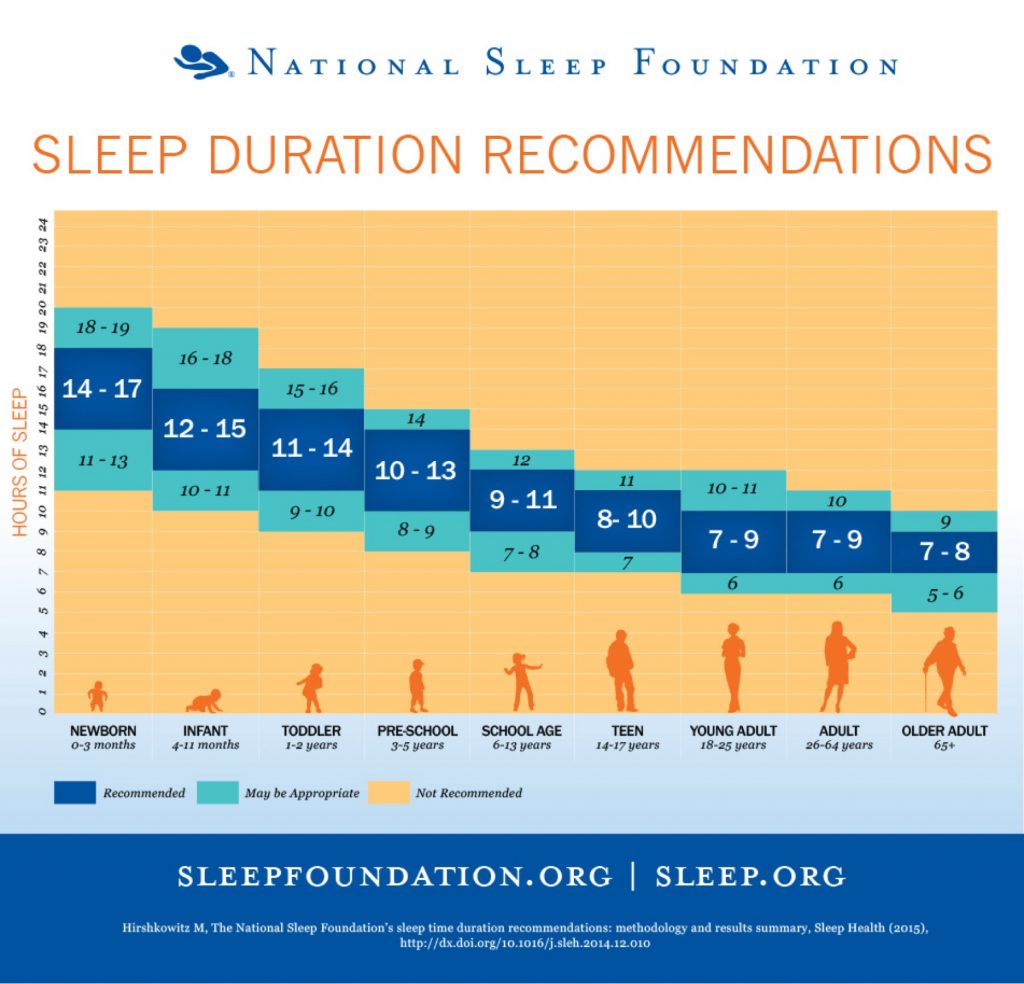
by Jessalyn Lau
We spend a third of our life in sleep, yet most people don’t realize how important sleep is and how to get a better night’s rest.
Dr. Sriharsha Vajjala is passionate about sleep medicine and is dedicated to helping you achieve an optimal night’s rest. As Hawaii’s first and only nationally accredited Insomnia and Sleep Center with a state-of-the-art Sleep Research Unit, Hawaii Pacific Neuroscience is dedicated to our comprehensive patient centric care model to serve and care for patients with insomnia and Sleep Disorders and is the first site to offer research therapy.
Our multidisciplinary team consists of a board-certified sleep specialist, neurologists, neuro-rehabilitation specialist, lifestyle medicine specialist, research physicians and counselors.
Our multidisciplinary team consists of a board-certified sleep specialist, neurologists, neuro-rehabilitation specialist, lifestyle medicine specialist, research physicians and counselors.

Did you know that poor sleeping habits can lead to health risks such as obesity, diabetes, and cardiovascular disease? It goes without saying that getting a good night’s sleep is one of the best things that you can do for yourself. So why do we tend to overlook, neglect, and not make sleep a priority? We looked to Dr. Sriharsha Vajjala, Director of the Sleep and Insomnia Center at Hawaii Pacific Neuroscience, to help put our sleep questions to rest.
Common Sleep Misconceptions
Sleep is not only important, but it is also necessary for so many reasons. Sleep helps our mind, body, and emotions to rest and rejuvenate. It helps us to process our thoughts, consolidate our memories, and allows for proper hormone production. Getting adequate sleep also helps us to avoid danger and make more thoughtful decisions. The sleep process is actually an active and organized process.
Sleep follows a Circadian Rhythm – or a 24-hour cycle – that is controlled by our biological clock. Our sleep patterns happen in 90-minute cycles and in different stages – 80% is Non-Rapid Eye Movement Sleep (NREM Sleep) and 20% is Rapid Eye Movement Sleep (REM Sleep). The Circadian Rhythm is why we are sleepy at certain times of the day and more energized during other parts of the day.
Sleep follows a Circadian Rhythm – or a 24-hour cycle – that is controlled by our biological clock. Our sleep patterns happen in 90-minute cycles and in different stages – 80% is Non-Rapid Eye Movement Sleep (NREM Sleep) and 20% is Rapid Eye Movement Sleep (REM Sleep). The Circadian Rhythm is why we are sleepy at certain times of the day and more energized during other parts of the day.
What is sleep and why is it important?
Dr. Sriharsha Vajjala shared with us some common sleep misconceptions and the truths behind them:
1
Myth: Snoring is a sign of deep sleep
Fact: Snoring is a sign of a narrow airway
Fact: Snoring is a sign of a narrow airway
2
Myth: I do not need 8 hours of sleep
Fact: According to the American Academy of Sleep Medicine, adults need 7-8 hours of sleep
Fact: According to the American Academy of Sleep Medicine, adults need 7-8 hours of sleep
3
Myth: Television helps me to sleep
Fact: Noise and white light from the TV delays sleep onset
Fact: Noise and white light from the TV delays sleep onset
4
Myth: Relaxing in bed is the same as sleeping
Fact: Spending time in bed without sleeping decreases your brain and bed sleep association
Fact: Spending time in bed without sleeping decreases your brain and bed sleep association
5
Myth: I only sleep for 1-2 hours or I do not sleep at all
Fact: Hours of sleep tend to be longer than what we perceive it to be – this is called sleep state misperception
Fact: Hours of sleep tend to be longer than what we perceive it to be – this is called sleep state misperception
6
Myth: I need to sleep at a reasonable hour
Fact: Forcing yourself to sleep at a particular hour may further worsen your sleep issue
Fact: Forcing yourself to sleep at a particular hour may further worsen your sleep issue
7
Myth: Alcohol helps me to sleep
Fact: Alcohol decreases your total sleep duration in the short term and is detrimental to your sleep in the long-term
Fact: Alcohol decreases your total sleep duration in the short term and is detrimental to your sleep in the long-term
Why do we Sleep?
The average adult needs 7-8 hours of sleep, whereas kids need different amounts depending on their age. Sleep plays a vital role in the physical, mental, and emotional development of children.

Our kupuna also need at least 6-8 hours of sleep. Though they may tend to sleep and wake up earlier, know that this is perfectly okay if they are satisfied with their sleep.
Dr. Sriharsha Vajjala shared that there has been extensive and emerging research that suggests sleep disturbance is linked to an increase in abnormal protein build up in the brain which can lead to Alzheimer’s Dementia.
He also noted that sleep apnea has also been linked to memory loss and Dementia. Dr. Sriharsha Vajjala defines sleep apnea as a breathing disorder of sleep and advises that you should talk to your doctor if you or your loved one is experiencing snoring, snorting, breathing pauses, insomnia (unable to stay asleep), and or daytime sleepiness, fatigue, or tiredness.
Dr. Sriharsha Vajjala shared that there has been extensive and emerging research that suggests sleep disturbance is linked to an increase in abnormal protein build up in the brain which can lead to Alzheimer’s Dementia.
He also noted that sleep apnea has also been linked to memory loss and Dementia. Dr. Sriharsha Vajjala defines sleep apnea as a breathing disorder of sleep and advises that you should talk to your doctor if you or your loved one is experiencing snoring, snorting, breathing pauses, insomnia (unable to stay asleep), and or daytime sleepiness, fatigue, or tiredness.
What can we do if we have these symptoms?
If you or your loved one have any of these symptoms, there are proactive steps that you can take to help remedy it. Dr. Sriharsha Vajjala provides us with some helpful sleep hygiene tips that we can easily implement into our daily routine!
1. Schedule a fixed bedtime and awakening time
2. Avoid napping during the day
3. Avoid alcohol 4-6 hours before bedtime
4. Avoid caffeine 4-6 hours before bedtime
5. Avoid heavy, spicy, or sugary foods 4-6 hours before bedtime
6. Exercise regularly, but not right before bed
7. Use comfortable bedding.
2. Avoid napping during the day
3. Avoid alcohol 4-6 hours before bedtime
4. Avoid caffeine 4-6 hours before bedtime
5. Avoid heavy, spicy, or sugary foods 4-6 hours before bedtime
6. Exercise regularly, but not right before bed
7. Use comfortable bedding.
8. Find a comfortable temperature setting for sleeping and keep the room well ventilated
9. Block out all distracting noise
10. Reserve the bed for only sleep and sex
11. Try a light snack before bed
12. Practice relaxation techniques before bed
13. Don’t take your worries to bed
14. Establish a pre-sleep ritual
15. Get into your favorite sleeping position
9. Block out all distracting noise
10. Reserve the bed for only sleep and sex
11. Try a light snack before bed
12. Practice relaxation techniques before bed
13. Don’t take your worries to bed
14. Establish a pre-sleep ritual
15. Get into your favorite sleeping position
If you or someone you know is experiencing any sleep difficulties or have sleep related questions, please call or text us at 808-261-4476. Dr. Sriharsha Vajjala is accepting new patients (ages 2 years and older) and all Hawaii Health insurances.
To find out more about Clinical Research Studies available in Hawaii, please call our research hotline at 808-564-6141 or email us at info@hawaiineuroscience.com.
To find out more about Clinical Research Studies available in Hawaii, please call our research hotline at 808-564-6141 or email us at info@hawaiineuroscience.com.

